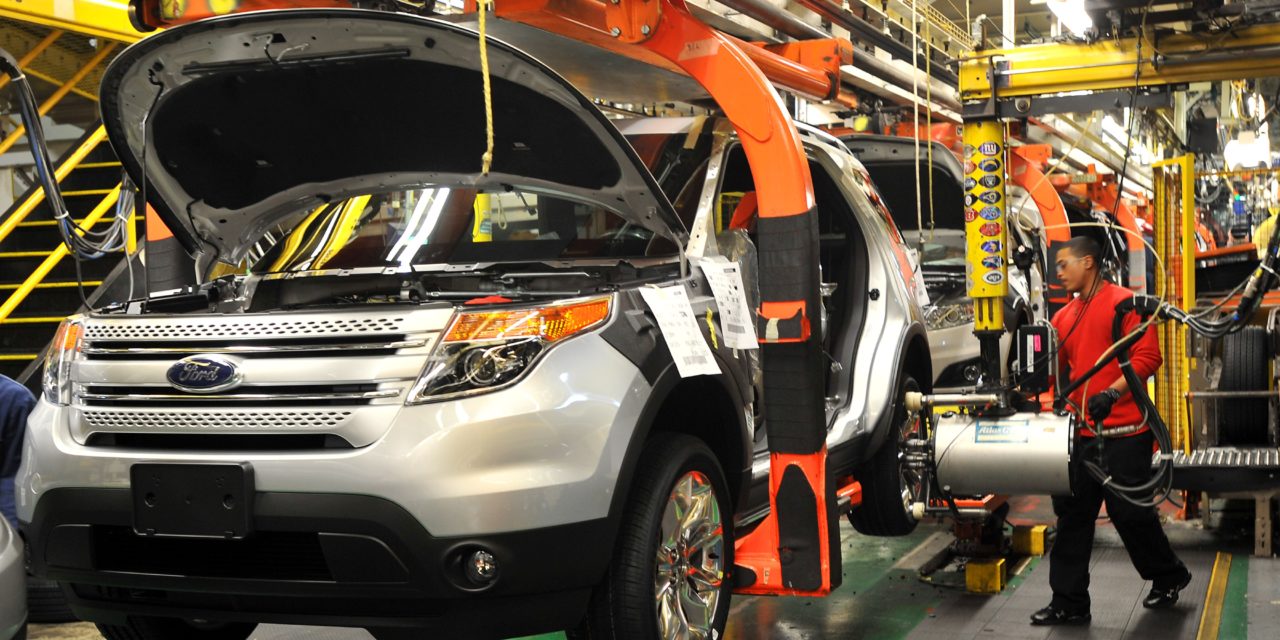As NAFTA trade negotiations between the U.S., Mexico and Canada enter a precarious stage, the auto industry and other key players in this clash are making contingency plans in case President Trump guts the agreement.
Some experts say the bargaining sessions are not going well as the Trump administration has demanded significant changes in NAFTA, the North American Free Trade Agreement, that trample upon the lines in the sand drawn by Mexico and Canada.
Michigan has the most to lose if NAFTA collapses because we are the state with the most trade with Canada. In fact, Many Michiganders may not realize that Michigan is a major player in global economic competition, ranking sixth among the 50 states in employment supported by exports to foreign countries, at 270,240 jobs.
At the same time, estimates of U.S. auto industry jobs lost if the free trade pact is scrapped range from 24,000 to 50,000.
What’s more, Michigan is a leading producer of several crops and most agriculture industry organizations say that eliminating the current, tariff-free North American market would hurt farmers.
Eric Kulisch of Automotive News wrote on Monday that, beyond the very real prospect of Trump killing the free trade agreement, substantial changes to NAFTA could also create a chaotic economic transition:
“Given the pitched negotiating positions, it would take a humiliating capitulation by Mexico, Canada or the U.S. to keep the agreement alive in anything close to its current form.
“For the auto industry, it matters little whether NAFTA gets blown up over political and nationalistic differences, or whether it’s recast with onerous provisions designed to improve the U.S. trade balance. The outcome is the same: supply chains that operate at suboptimal levels and increase the cost of making vehicles.”
The U.S. exports about 1 million vehicles a year to its neighbors to the north and south. One expert estimates that the return of pre-NAFTA border tariffs would amount to a $10 billion tax on the North American auto industry.
The Big Three U.S. automakers are reportedly making contingency plans for the implosion of NAFTA by facing up to the prospect that the multi-billion dollar supply chain developed between the three countries could be snapped. Dismantling it wouldn’t be easy or cheap.
Looking ahead, Mexico appears ready to rely upon Latin American trading partners, such as Colombia, Chile and Peru, to keep their export businesses humming. The Mexicans also eye potential trade agreements with the European Union and perhaps even China.
Auto suppliers that move factories from Mexico to the U.S. due to a NAFTA overhaul or elimination are likely to use more automation to save money as robot manufacturers have improved their models designed for the factory floor.
As for the foreign automakers who set up shop in the U.S., industry analysts say the German auto companies could shift their business blueprint by buying low-cost parts from Poland, Romania or Slovenia. Japanese automakers may use more components made in Thailand, India or China.
The friction between the Trump negotiating team and the triumvirate of opposition – Mexico, Canada and the auto industry – centers on attempts to significantly boost content requirements for vehicles that would favor the U.S.
The U.S. wants each vehicle manufactured on the continent to include North American-made parts content of 85 percent overall, up from the current 62.5 percent. In addition, Trump is also pressing for a new 50 percent U.S.-content requirement on all American-made automobiles. The current average is about 30 percent.
The opposition says, no way. Such a move could substantially raise the price of cars and trucks.











